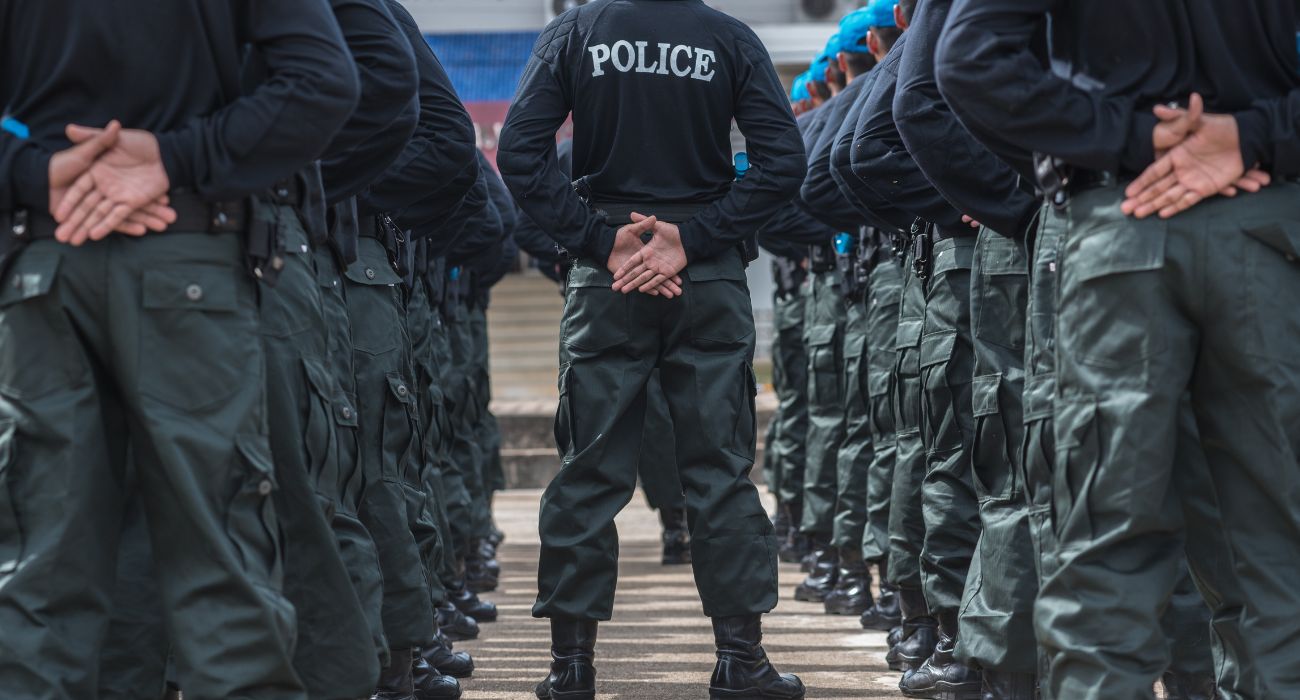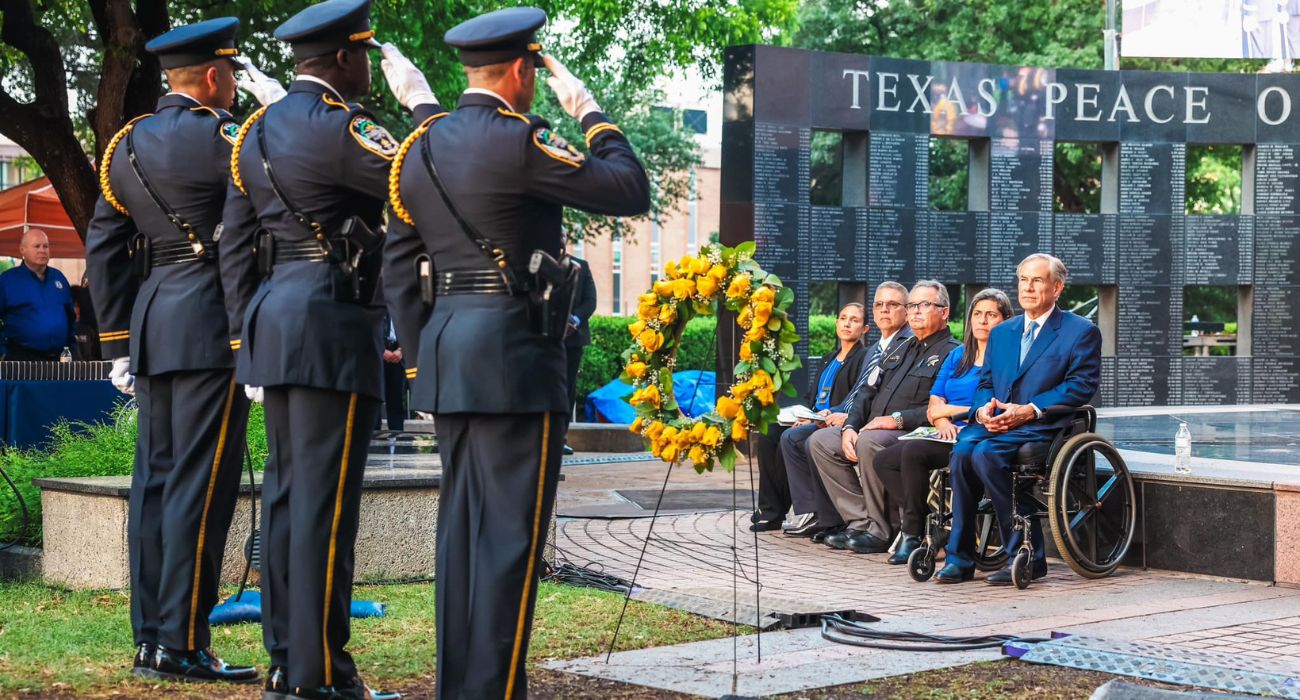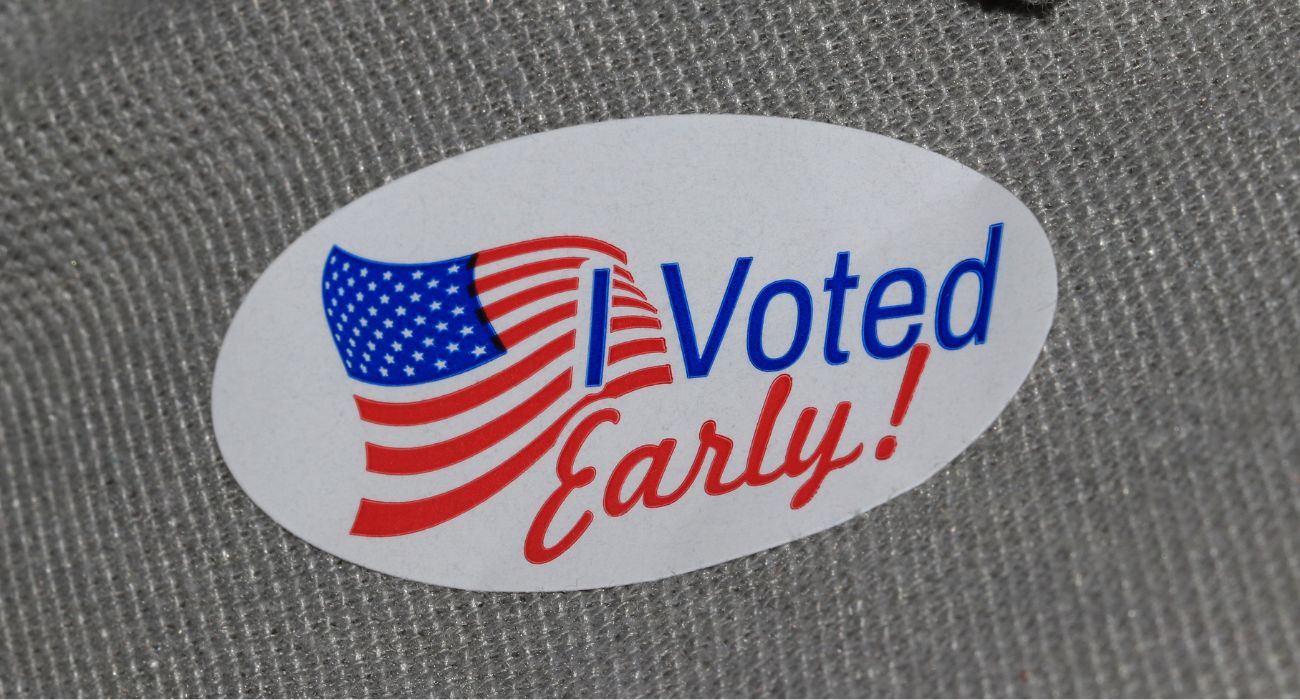A bill to enable armed forces veterans who are legal permanent U.S. residents to be licensed as law enforcement officers if they meet certain criteria is currently making its way through the Texas Legislature.
Filed by Rep. Hubert Vo (D-Houston), House Bill 1152 is intended to address the recruiting shortage in police departments around the state by providing a pathway for more military veterans to become police officers.
Vo’s legislation states that “a political subdivision that commissions and employs peace officers may commission and employ as a peace officer a legal permanent resident of the United States who is an honorably discharged veteran of the armed forces of the United States.”
It would also require the Texas Commission on Law Enforcement to grant a peace officer license if the veteran meets the existing requirements and “is an honorably discharged veteran of the armed forces of the United States.”
This bill, if passed, would potentially enable people who are not U.S. citizens to become police officers. Lawful permanent residents (LPRs) “are non-citizens who are lawfully authorized to live permanently within the United States,” according to the Department of Homeland Security.
LPRs are sometimes referred to as “green card” holders and can serve in the military. Currently, however, law enforcement officers must be U.S. citizens.
Rep. Vo explained to The Dallas Express, “This idea came to us via the Houston mayor’s office during the 86th legislative session due to the shortage of peace officers.”
“The past two sessions we filed this piece of legislation, it made it out of the House but died in the Senate,” he noted. “Now we are hearing from the sheriffs that they too are facing shortages of jailers, dispatchers, and telecommunicators.”
“The demand for peace officers is high, but the profession’s pool of applicants is declining. One group that would be naturally suited to fill these gaps are veterans who are lawful permanent residents who were honorably discharged,” Vo suggested.
He added that veterans “have excellent communication skills, can operate under stress, have a deep understanding of chain-of-command, and work well in a unit.”
“This piece of legislation just seeks to allow them the ability to apply to the law enforcement vacancies.” However, he further explained, “They would still have to meet all the requirements that are required of them.”
“They have already demonstrated excellence by their service to the United States. Not only that, but [they] have sacrificed their lives to serve and protect communities not only stateside but abroad,” Vo said.
“These veterans understand service to a greater cause and that sense of purpose should be fostered, making them the perfect candidates for the vacancies experienced by cities across [Texas],” he concluded.
The proposal has received the support of law enforcement officials.
Speaking on behalf of the V.O.I.C.E.S. Foundation, Sgt. Steven Price stated, “Military veterans have demonstrated a strong work ethic, and the ability to work in teams and in the most challenging of life situations. These skills make many veterans ideal candidates for police work.”
Furthermore, the Texas School District Police Chiefs’ Association has indicated its support.
However, some have expressed concern about the expansion of military veterans within local police departments.
A study by the University of Texas School of Public Health in Dallas suggested that Dallas Police Department officers who previously served in the military but were not deployed “were significantly more likely to be involved in a shooting than non-veteran officers. Veterans with a deployment history were 2.9 times more likely to be in a shooting than non-veteran officers.”
Similarly, an investigation by the Marshall Project claimed that “veterans are more likely to get physical,” adding, “Veterans who work as police are more vulnerable to self-destructive behavior – alcohol abuse, drugs and … attempted suicide.”
Additionally, the advocacy group alleged, “Hiring preferences for former service members that tend to benefit whites disproportionally make it harder to build police forces that resemble and understand diverse communities.”
An identical filing, HB 278, has been making its way through various committees. In the Senate, a similar bill was filed by Sen. Carol Alvarado (D-Houston), which is currently in the State Affairs committee.






